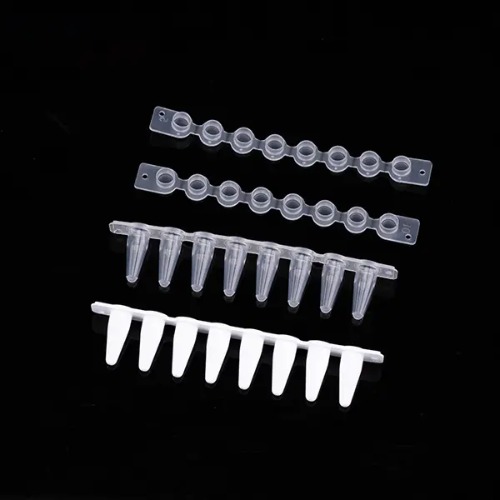In the rapidly evolving landscape of molecular biology, PCR tubes have become an indispensable component of laboratory workflows. As technology advances, PCR tubes manufacturers are constantly innovating to meet the demanding requirements of modern research and diagnostic facilities. These small yet crucial containers play a vital role in the polymerase chain reaction (PCR) process, which has revolutionized genetic analysis and molecular diagnostics. With the increasing emphasis on automation and high-throughput screening, the design and production of PCR tubes have undergone significant transformations to keep pace with the changing needs of laboratories worldwide.
Table of contents:
How PCR Tube Design is Evolving to Meet High-Throughput Demands
The Integration of PCR Tubes with Robotic Handling Systems
Wholesale PCR Tubes for Automated Workflows: Ensuring Consistency at Scale
PCR Tubes and Digital PCR: Adapting to Next-Generation Molecular Diagnostics
The evolution of PCR tube design is a testament to the ingenuity of PCR tubes manufacturers in addressing the challenges of modern molecular biology. Today's PCR tubes feature ultra-thin walls for rapid temperature conduction, ensuring faster and more efficient thermal cycling. The flat lid design, now standard in many products, is particularly suitable for real-time PCR applications, allowing for improved optical clarity during fluorescence detection. PCR tubes suppliers are also focusing on developing tubes with enhanced sealing properties to prevent sample loss and contamination, which is crucial in automated systems where tube integrity is paramount. These advancements in design are enabling researchers to process larger numbers of samples with greater accuracy and speed.

As laboratories increasingly adopt automated workflows, the integration of PCR tubes with robotic handling systems has become a key focus for PCR tubes manufacturers. The dimensions and materials of PCR tubes are now being optimized for compatibility with various automated liquid handling platforms. For instance, some tubes are designed with specific features that allow for easy gripping by robotic arms, ensuring smooth transfer and positioning within thermal cyclers. PCR tubes suppliers are collaborating closely with instrumentation companies to develop tubes that seamlessly interface with a wide range of automated PCR systems, thus enhancing the efficiency and reliability of high-throughput molecular testing processes.

The demand for wholesale PCR tubes has surged with the rise of large-scale automated workflows in research and diagnostic laboratories. PCR tubes manufacturers are responding by producing tubes in bulk quantities without compromising on quality or consistency. These wholesale offerings are crucial for facilities that process thousands of samples daily. PCR tubes suppliers are implementing rigorous quality control measures to ensure that each batch of tubes meets the exacting standards required for automated systems. From material selection to packaging, every aspect of production is scrutinized to maintain the reliability and performance of PCR tubes at scale, supporting the needs of high-volume molecular testing environments.
The advent of digital PCR has further challenged PCR tubes manufacturers to innovate. This technology requires PCR tubes that can facilitate the partitioning of samples into thousands of nanoliter-sized droplets. In response, manufacturers are developing specialized tubes with surface properties that support droplet formation and stability. PCR tubes suppliers are now offering products specifically designed for digital PCR platforms, featuring materials that are compatible with the oils and surfactants used in these systems. These advancements are enabling more precise quantification of nucleic acids and rare sequence detection, pushing the boundaries of what's possible in molecular diagnostics and research applications.
The landscape of PCR technology continues to evolve, and with it, the humble PCR tube remains at the forefront of innovation. PCR tubes manufacturers and suppliers are playing a crucial role in shaping the future of molecular biology by adapting their products to meet the demands of automation and high-throughput processing. From improved thermal properties to compatibility with robotic systems, modern PCR tubes are engineered to support the most advanced applications in genetic analysis and diagnostics. As laboratories worldwide embrace automation to increase efficiency and accuracy, the continued development of PCR tubes will undoubtedly contribute to further advancements in life sciences research and clinical diagnostics. The collaboration between PCR tubes manufacturers, suppliers, and end-users ensures that these essential laboratory consumables will continue to evolve, supporting the next generation of molecular discoveries and applications.